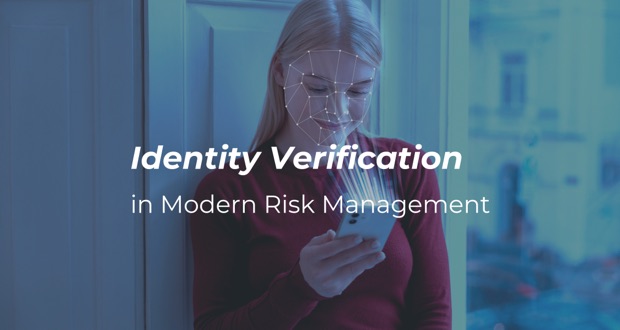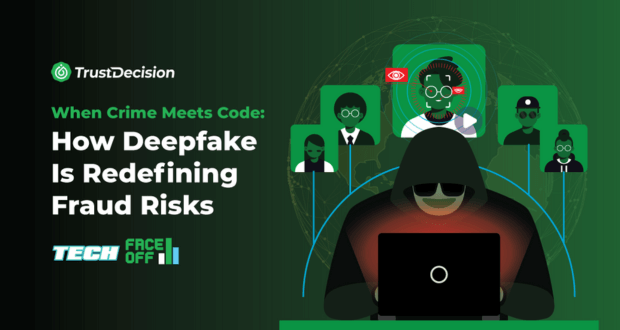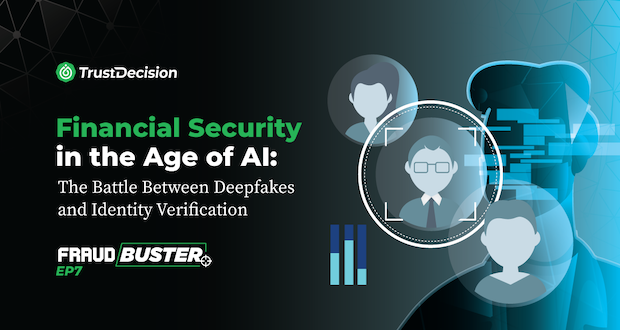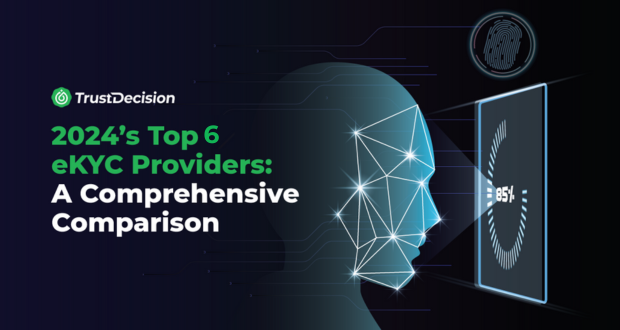Understanding Identity Verification
What is Identity Verification?
Identity verification is the process of confirming that an individual is who they claim to be. This involves validating various forms of identification, such as government-issued IDs, biometric data, and other personal information, against trusted sources. The goal is to ensure that only legitimate individuals gain access to sensitive information, services, or transactions. In the digital age, identity verification has expanded beyond traditional methods to include advanced technologies like AI-driven algorithms and biometric authentication, making the process more secure and efficient.
Importance of Accurate Verification
Accurate identity verification is crucial for several reasons:
Security: It acts as a barrier against unauthorized access, protecting sensitive data and systems from malicious actors.
Compliance: Regulatory frameworks such as GDPR, CCPA, and KYC require businesses to implement stringent identity verification processes to protect consumer data and prevent fraud.
Customer Trust: Accurate verification builds trust with customers by ensuring their personal information is secure, thereby enhancing their overall experience and loyalty.
Operational Efficiency: Streamlined verification processes reduce the time and resources spent on manual checks, allowing businesses to operate more efficiently.
Impact of Inaccurate Verification
The consequences of inaccurate identity verification can be severe and far-reaching:
Financial Losses: Fraudulent activities resulting from poor verification can lead to significant financial losses. For instance, identity theft can result in unauthorized transactions and chargebacks, impacting a company's bottom line.
Reputational Damage: A single breach can tarnish a company's reputation, leading to loss of customer trust and potential business opportunities.
Regulatory Penalties: Failure to comply with regulatory requirements can result in hefty fines and legal repercussions. For example, non-compliance with GDPR can lead to fines of up to 4% of annual global turnover.
Operational Disruptions: Inaccurate verification can lead to operational inefficiencies, such as increased manual reviews and higher false-positive rates, which can disrupt business processes and customer experiences.
In summary, understanding the intricacies of identity verification is essential for businesses aiming to protect themselves and their customers. Accurate verification not only enhances security and compliance but also builds customer trust and operational efficiency. TrustDecision's advanced solutions are designed to address these challenges, providing businesses with the tools they need to implement effective and reliable identity verification processes.
Identity Verification in the Digital Age
Risks of Identity Theft
As digital interactions become increasingly prevalent, the risk of identity theft has surged. Cybercriminals employ sophisticated techniques to steal personal information, which they can use to commit various forms of fraud, including financial fraud, account takeovers, and unauthorized access to sensitive data. The consequences of identity theft are severe, ranging from financial losses and reputational damage to legal repercussions and loss of customer trust. According to various industry reports, identity theft continues to be a significant threat, costing consumers and businesses billions of dollars annually. This highlights the urgent need for robust identity verification measures to protect against these growing threats.
Benefits of Secure Verification
Implementing secure identity verification processes offers numerous benefits for businesses:
Enhanced Security: Secure verification methods, such as biometric authentication and AI-driven analysis, provide a higher level of security, making it more difficult for fraudsters to bypass the system.
Regulatory Compliance: Adhering to stringent verification protocols helps businesses comply with regulatory requirements, thereby avoiding hefty fines and legal issues.
Customer Trust and Satisfaction: When customers know that their personal information is protected, their trust in the business increases, leading to higher customer satisfaction and loyalty.
Operational Efficiency: Advanced verification technologies streamline the verification process, reducing the need for manual checks and minimizing false positives, which in turn enhances operational efficiency.
In conclusion, as the digital landscape continues to evolve, the importance of secure identity verification cannot be overstated. By addressing the risks of identity theft and leveraging advanced technologies, businesses can protect themselves and their customers.
Modern Solutions for Identity Verification
Digital ID Wallets
Digital ID wallets represent a significant advancement in the realm of identity verification. These wallets allow individuals to store and manage their identity credentials securely on their smartphones or other digital devices. By using digital ID wallets, users can easily verify their identities across various platforms and services without the need to repeatedly provide physical documents. This not only enhances user convenience but also improves security by reducing the risk of identity theft and fraud. Digital ID wallets often incorporate advanced encryption and biometric authentication, ensuring that only the rightful owner can access and use the stored credentials. As businesses and governments increasingly adopt digital ID wallets, they are becoming a cornerstone of modern identity verification strategies.
Blockchain for Identity Verification
Blockchain technology offers a decentralized and tamper-proof method for identity verification, providing a new level of security and transparency. By leveraging blockchain, identity credentials can be stored in a distributed ledger that is immutable and accessible only to authorized parties. This ensures that identity data cannot be altered or tampered with, significantly reducing the risk of fraud. Blockchain-based identity verification also enhances user privacy, as individuals have greater control over their personal information and can choose what data to share and with whom. While still an emerging technology, blockchain holds great promise for revolutionizing identity verification by providing a secure, transparent, and user-centric approach.
AI in Identity Verification
Artificial intelligence (AI) is transforming identity verification by enabling more accurate, efficient, and scalable processes. AI-driven identity verification systems can analyze vast amounts of data in real-time, identifying patterns and anomalies that may indicate fraudulent activity. Machine learning algorithms continuously improve their accuracy by learning from new data, making them highly effective at detecting and preventing fraud. AI can also enhance biometric verification methods, such as facial recognition and fingerprint scanning, by improving their precision and reducing false positives. TrustDecision, for example, leverages AI and machine learning to provide advanced identity verification solutions that offer real-time verification, multi-layered authentication, and proactive fraud detection. By integrating AI into their verification processes, businesses can achieve higher levels of security and operational efficiency, ensuring that only legitimate individuals gain access to their services.
TrustDecision's Innovative Solutions
TrustDecision is at the forefront of providing cutting-edge identity verification solutions designed to address the challenges of the digital age. By leveraging advanced technologies such as AI, machine learning, and biometric authentication, TrustDecision offers a comprehensive suite of tools that ensure accurate and efficient identity verification.
Key Features of TrustDecision's Solutions:
Real-time Identity Verification: TrustDecision's platform provides real-time verification, allowing businesses to authenticate identities quickly and accurately. This is crucial for industries that require instant verification, such as e-commerce and online financial services.
Multi-layered Authentication: The solution employs multiple layers of authentication, including document verification, facial recognition, and liveness detection, to ensure a high level of security.
AI-driven Fraud Detection: TrustDecision utilizes AI and machine learning algorithms to analyze vast amounts of data and detect fraudulent activities with high precision. This proactive approach helps businesses stay ahead of emerging threats.
Seamless Integration: TrustDecision's solutions are designed to integrate seamlessly with existing systems, making it easy for businesses to implement robust identity verification without disrupting their operations.
Enhancing Security with Identity Verification
Biometric Authentication
Biometric authentication is a powerful tool in the arsenal of identity verification, leveraging unique biological traits such as fingerprints, facial recognition, and iris scans to confirm an individual's identity. Unlike traditional methods that rely on passwords or PINs, biometric authentication is inherently more secure because it is based on characteristics that are difficult to replicate or steal. This technology not only enhances security but also improves user experience by providing a quick and seamless verification process. As biometric sensors become more advanced and widespread, businesses can leverage this technology to significantly reduce the risk of unauthorized access and fraud.
Multi-factor Authentication
Multi-factor authentication (MFA) adds an extra layer of security by requiring users to provide two or more verification factors to gain access to a system or service. These factors typically include something the user knows (like a password), something the user has (like a smartphone or security token), and something the user is (like a biometric trait). By combining multiple forms of verification, MFA makes it exponentially harder for cybercriminals to compromise an account. This layered approach is particularly effective in protecting sensitive information and critical systems, making it a vital component of any robust identity verification strategy.
Regulatory Technology
Regulatory technology (RegTech) plays a crucial role in ensuring that identity verification processes comply with various legal and regulatory requirements. RegTech solutions use advanced technologies such as AI, machine learning, and blockchain to automate compliance tasks, monitor transactions, and detect suspicious activities in real-time. This not only helps businesses stay compliant with regulations like GDPR, CCPA, and KYC but also reduces the risk of fines and legal repercussions. By integrating RegTech into their identity verification processes, businesses can streamline compliance, enhance security, and build trust with regulators and customers alike.
In conclusion, enhancing security with advanced identity verification methods such as biometric authentication, multi-factor authentication, and regulatory technology is essential for protecting businesses and their customers in today's digital landscape. These technologies offer robust protection against unauthorized access and fraud while ensuring compliance with regulatory standards. By adopting these advanced security measures, businesses can create a safer and more trustworthy environment for their operations and stakeholders.
Identity Verification in Different Industries
E-commerce
In the e-commerce sector, identity verification is crucial for preventing fraud and ensuring secure transactions. Online retailers face constant threats from cybercriminals attempting to use stolen identities to make fraudulent purchases. By implementing robust identity verification measures, such as biometric authentication and multi-factor authentication, e-commerce businesses can significantly reduce the risk of fraud. Additionally, secure identity verification enhances customer trust, leading to higher conversion rates and customer loyalty. TrustDecision's solutions, for example, provide real-time verification and multi-layered authentication, helping e-commerce platforms protect their customers and their bottom line.
Online Travel
The online travel industry also benefits greatly from advanced identity verification. With the increasing number of bookings and transactions conducted online, travel companies must ensure that the individuals making reservations are who they claim to be. Accurate identity verification helps prevent fraudulent bookings and unauthorized access to travel services. Moreover, it streamlines the check-in process, allowing travelers to verify their identities quickly and easily. This not only enhances security but also improves the overall customer experience. TrustDecision's innovative solutions can help online travel companies implement effective identity verification processes, ensuring secure and seamless transactions.
Government Services
Government services require stringent identity verification to ensure that only eligible individuals can access various public services and benefits. From applying for social security benefits to accessing healthcare services, accurate identity verification is essential for preventing fraud and ensuring that resources are allocated to the right individuals. Advanced technologies such as biometric authentication and AI-driven verification can help government agencies enhance security and efficiency. TrustDecision's solutions offer real-time verification and multi-layered authentication, making it easier for government services to verify identities accurately and securely.
Impact on Banking and Consumer Finance
In the banking and consumer finance sectors, identity verification is a critical component of risk management and regulatory compliance. Financial institutions must verify the identities of their customers to prevent money laundering, fraud, and other financial crimes. Robust identity verification processes help banks comply with regulations such as Know Your Customer (KYC) and Anti-Money Laundering (AML) requirements. Additionally, secure verification enhances customer trust and protects sensitive financial information. TrustDecision's advanced solutions leverage AI and biometric authentication to provide accurate and efficient identity verification, helping financial institutions mitigate risks and comply with regulatory standards.
In summary, identity verification plays a vital role in various industries, including e-commerce, online travel, government services, and banking and consumer finance. By implementing advanced verification technologies, businesses and government agencies can enhance security, prevent fraud, and improve customer trust and satisfaction. TrustDecision's innovative solutions provide the tools necessary to achieve these goals, setting new standards in identity verification across different sectors.
Conclusion
The future of identity verification will be driven by advancements in AI, machine learning, and biometrics, offering more secure and efficient methods to combat increasingly sophisticated cyber threats. Businesses that adopt these cutting-edge technologies will be better positioned to protect themselves and their customers.
TrustDecision leads the way in modern risk management with innovative identity verification solutions. By leveraging real-time verification, multi-layered authentication, and AI-driven fraud detection, TrustDecision helps businesses mitigate risks, comply with regulations, and enhance customer trust.
Secure identity verification is essential for protecting against fraud and cybercrime. Advanced methods like biometric authentication and AI-driven analysis provide robust security, enhance customer trust, and ensure regulatory compliance. Embracing these technologies is crucial for businesses aiming to create a safer, more trustworthy environment.









.jpeg)




